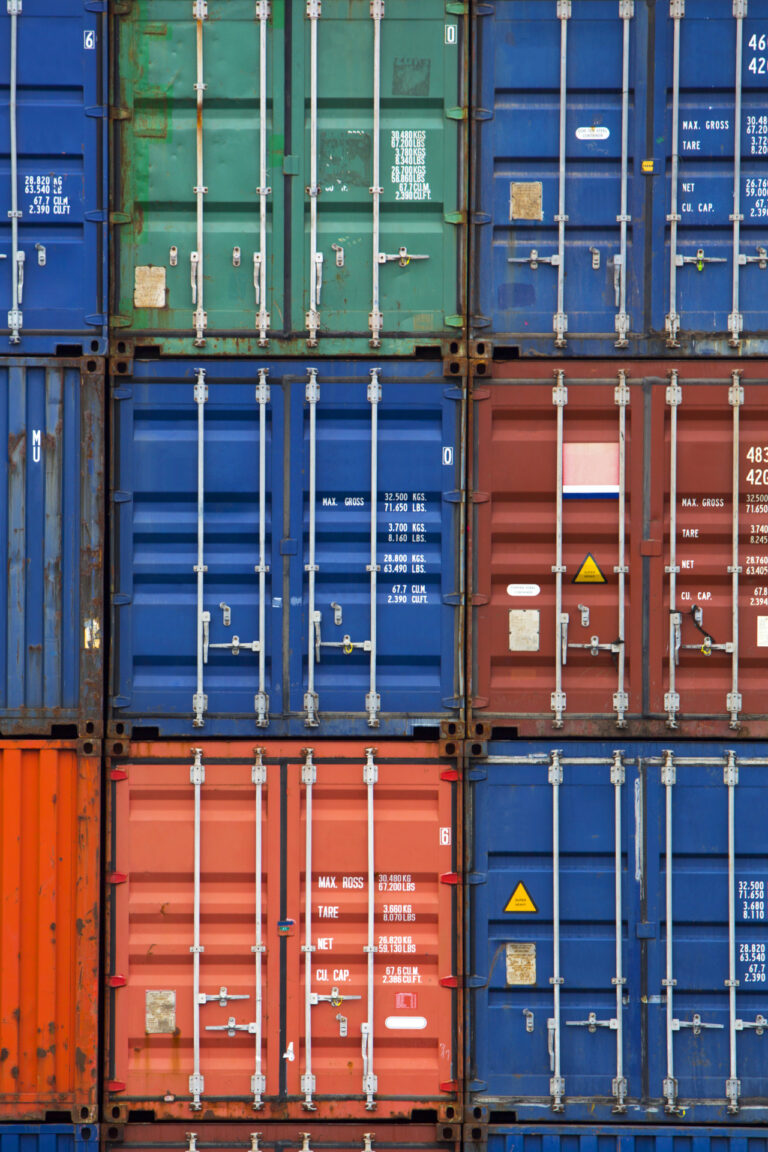
Container Chassis
Container chassis support the development of intermodal operations
A container chassis is a type of semi-trailer whose design is adapted to the transport of shipping containers. A vehicle with such a chassis can safely transport a container from a port to railway stations, warehouses and many other logistics hubs.
Container chassis - easy transport and high performance
One of the biggest advantages of container chassis is that they can be used to transport containers of varying sizes and weights. Importantly, they can be adapted to different types of containers, including:
-
20-foot containers,
-
40 foot containers,
-
45-foot containers.
On the design side, the container chassis type is distinguished by its low deck height, which leads to a lower centre of gravity and reduces the likelihood of the trailer tipping over during transport. It is also worth mentioning that, thanks to the lowered deck, the loading and unloading of containers is significantly facilitated.
Container chassis – options to consider
The efficient operation of container chassis is due to their relatively low weight, as well as their considerable strength. This makes them suitable for transporting containers of varying sizes, contents and weights. Thanks to the chassis, we can offer you a significant reduction in handling times at the terminal, which also reduces logistics costs in the long term.
Container chassis - the strongest link in intermodal transport
What is the maximum weight that a container trailer can carry? In its standard configuration, the maximum weight of a container is limited by the permissible weight of the combination (tractor and semi-trailer with load) of 40 tonnes. However, regulations allow for the possibility of increasing the permissible weight of the cargo transported by container. Utilising a 6x2 tractor with double rear axles allows the total weight of the vehicle and cargo to be increased to 44 tonnes. Regulations also specify a maximum route length of 150 km from the loading terminal, facilitating efficient intermodal transport.
Container chassis are specialised means of transport for the transportation of sea containers, with which we can optimise international logistics operations. Should you wish to learn more about the services we provide, please do not hesitate to contact us to determine the possible scope of cooperation.
FAQ
GMP+ FSA (Feed Safety Assurance) is a certification aimed at ensuring the safety of feed fed to livestock. This standard covers all stages of feed production and therefore applies to both cultivation and transport. GMP stands for Good Manufacturing Practices and the '+' symbolises integration with Hazard Analysis Critical Control Point (HACCP). The GMP+ certification has set the standard for the quality of our order handling since 2016.
ISO 22000 specifies the requirements for food safety management systems, applicable to all organisations in the food production chain, from cultivation and farming to retail. ISO 22000 sets a standard that is relevant not only for food producers, but also for manufacturers of equipment, packaging, cleaning products, food additives and ingredients. At our company, we are committed to ensuring the safety of the food and its ingredients we transport and store, and as proof of this commitment, we have been ISO certified for 15 years.
The spacious set is an excellent choice for transporting relatively light goods due to its ability to carry up to 38 pallets. However, due to the two loading spaces, the loading and unloading process may be lengthier. During loading, the trailer typically needs to be uncoupled first to allow the truck to be filled with goods, and then re-coupled by the driver to continue loading. The new jumbo trucks in the MEXEM fleet offer a more efficient solution by allowing loading without unbuckling the trailer, significantly reducing the time and effort required for the process. These trucks feature openable rear and front walls of the vehicle's load compartment and trailer, which are fitted with a drop-down aluminium platform, enabling the truck to manoeuvre between the load boxes.
The ATP Convention is an international document that details the standards associated with the transport of food and other perishable goods. Road transport is subject to the Convention, so any vehicle used for the transport of perishable goods must have a certificate of conformity for the means of transport, commonly referred to as an ATP certificate. The certificate is valid for six years, after which further tests must be carried out every three years. These certificates are issued by institutions designated by the Ministry of Transport. All our refrigerated semi-trailers are, as a matter of course, equipped with ATP certificates.
The mega semi-trailer is distinguished by its very large volume, reaching almost 100 cubic metres (which is approximately 10% more volume than a standard semi-trailer). Increasing the load compartment while maintaining the permissible overall height of the vehicle is made possible by lowering the frame and increasing the height of the trailer interior. The hydraulically raised roof makes it easier to load and fully utilise the height of the loading space, which reaches almost 3 metres. A prime example of the advantages of mega-trailers over standard semi-trailers is the ability to carry not two, but three floors of goods such as cookers or washing machines, all while maintaining safety standards.
The maximum weight of a pallet placed on the floor of our double deck semi-trailers is approximately 300 kg (the load capacity of each beam is 1 tonne). The height of the pallets should not exceed 120 cm. Our double decks are available with a rigid body or are additionally equipped with insulation and a refrigeration unit and can therefore function as a double-deck refrigerated trailer.


